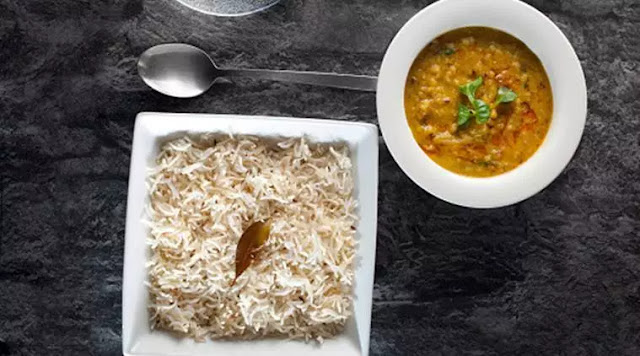Different Types Of Tea And Their Health Benefits
Tea is one of the most popular beverages in this world. And, with good reason too! Be it as a rejuvenating drink, a refreshing flavour, a boost to the spirits or a weight loss tonic – tea has a little something for everyone.
Especially in your parenting journey, when your anxiety levels hit the roof or you don’t have the time to follow a fitness regimen to lose weight, sip the right tea that helps you through your day.
Let’s examine the various types of tea and their health benefits.
1. Green tea
Today, green tea has become a favourite for its many health benefits, among teens and adults alike. It is rich in health-promoting antioxidants that boost your mood.
Benefits:
- Helps burn fat and lowers blood pressure
- Prevents clogging of the arteries
- Plays a key role in restricting the growth of lung, stomach and pancreatic cancer
- Reduces the risk of neurological disorders such as Alzheimer’s and Parkinson’s diseases
Caution: One should keep a limit on the amount of green tea consumed per day. Patients suffering from liver, kidney or heart problems, or pregnant women must consult their doctor first, before drinking green tea. This is because green tea contains traces of caffeine, which may cause stomach problems, sleep issues, irregular heartbeats and headache.
2. Black tea
Of all the varieties of tea, black tea has the highest content of caffeine, which increases mental alertness and may reduce the damage caused to the lungs by cigarette smoking.
Benefits:
- Contains vitamins and antioxidants that protect the heart and lungs
- Improves gastrointestinal health
- Prevents tooth decay
Caution: Since black tea contains a high amount of caffeine, it is not advisable to have too much of it on a daily basis. This may result in difficulty in sleeping, headaches, nervousness and heartburn.
3. White tea
Compared to other varieties, white tea has a light taste. Compared to other varieties, white tea has a light taste. It is dried in the sun and minimally processed; so, it has a slightly higher antioxidant content than other varieties of tea. It also has the lowest caffeine content among various types.
Benefits:
- Strengthens the heart
- Promotes weight loss
- Has anti-cancer properties
Caution: Consuming high amounts of white tea may affect the body’s absorption of iron.
4. Oolong tea
This tea is a semi-oxidised variant from Camellia Sinensis. Oolong tea also contains a high number of polyphenols.
Benefits:
- Brings about mental alertness
- Prevents tooth decay
- Helps fight obesity
- Enhances digestion
- May prevent cancer and heart disease
Caution: Taking oolong tea for prolonged periods may increase the risk of developing diabetes.
5. Chamomile tea
It is considered by many to be one of the most popular types of herbal tea for its calming abilities and distinct taste. This tea is made using the dried chamomile flowers, native to Asia, Europe and North America. It contains Chamazulene, which is a chemical compound rich in anti-inflammatory and analgesic properties.
Benefits:
Benefits:
- Fights cold and sore throats
- Prevents acne
- Aids sleep and digestion
- Stabilises blood sugar
- Hastens wound healing
- Improves heart health
Caution: Intake of chamomile tea should be limited, for it may cause nausea and vomiting. It is better that pregnant women avoid drinking chamomile tea because it contains traces of caffeine, which is not advisable during pregnancy. As the pregnancy progresses, the body will find it increasingly difficult to break down caffeine. Also, too much caffeine content in the body can cause heartburn.
6. Rooibos tea
Want an alternative to green or black tea? Try rooibos tea. A caffeine-free herbal drink, rooibos tea provides many health benefits and acts as a rich source of dietary antioxidants. Rooibos tea comes from a family of plants called Fabaceae that grow in South Africa.
Benefits:
- Improves bone health
- Protects the heart by raising the levels of good cholesterol
- Reduces stress levels and helps relieve stomach discomfort
- Protects against cancer, heart disease and stroke
Caution: Large amounts of rooibos tea may increase the activity of liver enzymes leading to liver problems.
7. Hibiscus tea
Renowned across the world for its medicinal properties, hibiscus tea is low in calories and is caffeine-free. It is made from the dried parts of the hibiscus plant and is distinguished by its cranberry-like flavour.
Benefits:
- May lower blood pressure
- Aids weight loss
- Lowers cholesterol
- Has anti-inflammatory properties
- Is a good remedy for nausea and vomiting
Caution: Drinking too much of hibiscus tea may result in an upset stomach, constipation, headache and gas.
8. Peppermint tea
A cup of peppermint tea has many health benefits. It is sometimes known as the stomach healer tea because of its cooling properties. It is made from peppermint leaves and is one of the healthiest herbal infusions.
Benefits:
- Soothes an upset stomach
- Treats menstrual cramps
- Reduces bad breath
- Relieves headaches
- Strengthens the immune system
Caution: Large amounts of peppermint tea may cause heartburn and headache.
Drinking tea has a calming and refreshing effect on us. Today, many are turning to different types of non-herbal and herbal tea for the various health benefits they offer. Make a cup or two of tea a part of your daily ritual to reap the many benefits.







Comments
Post a Comment